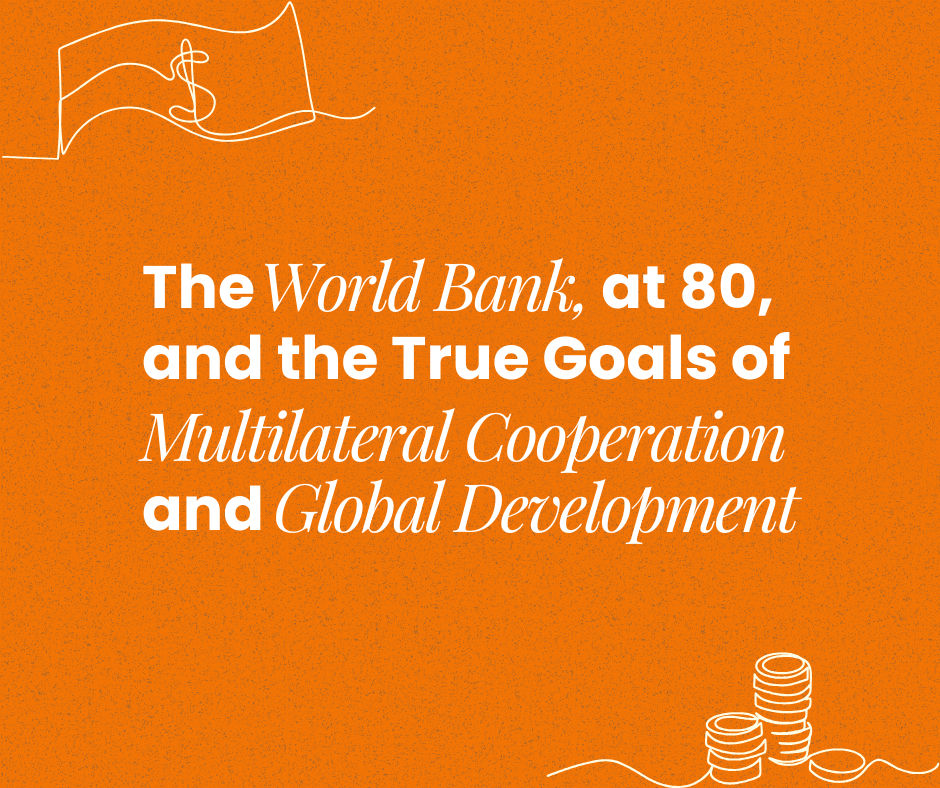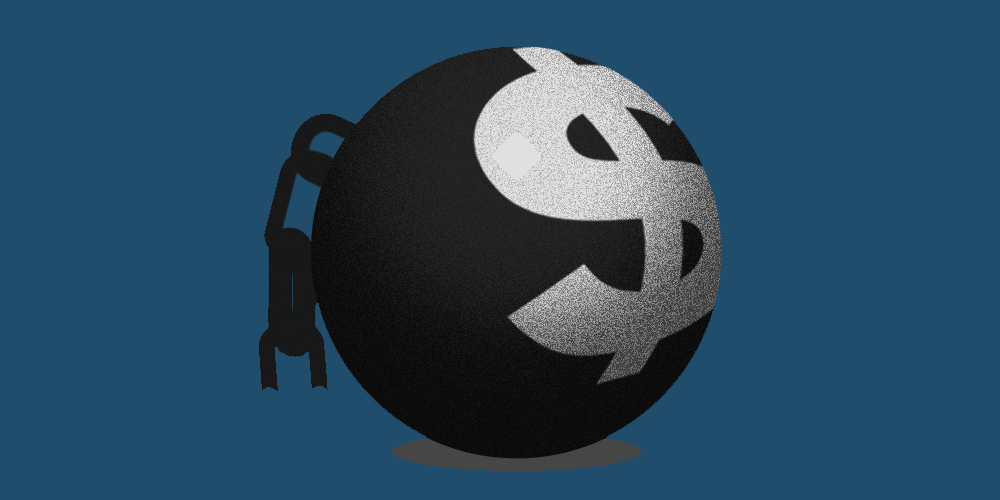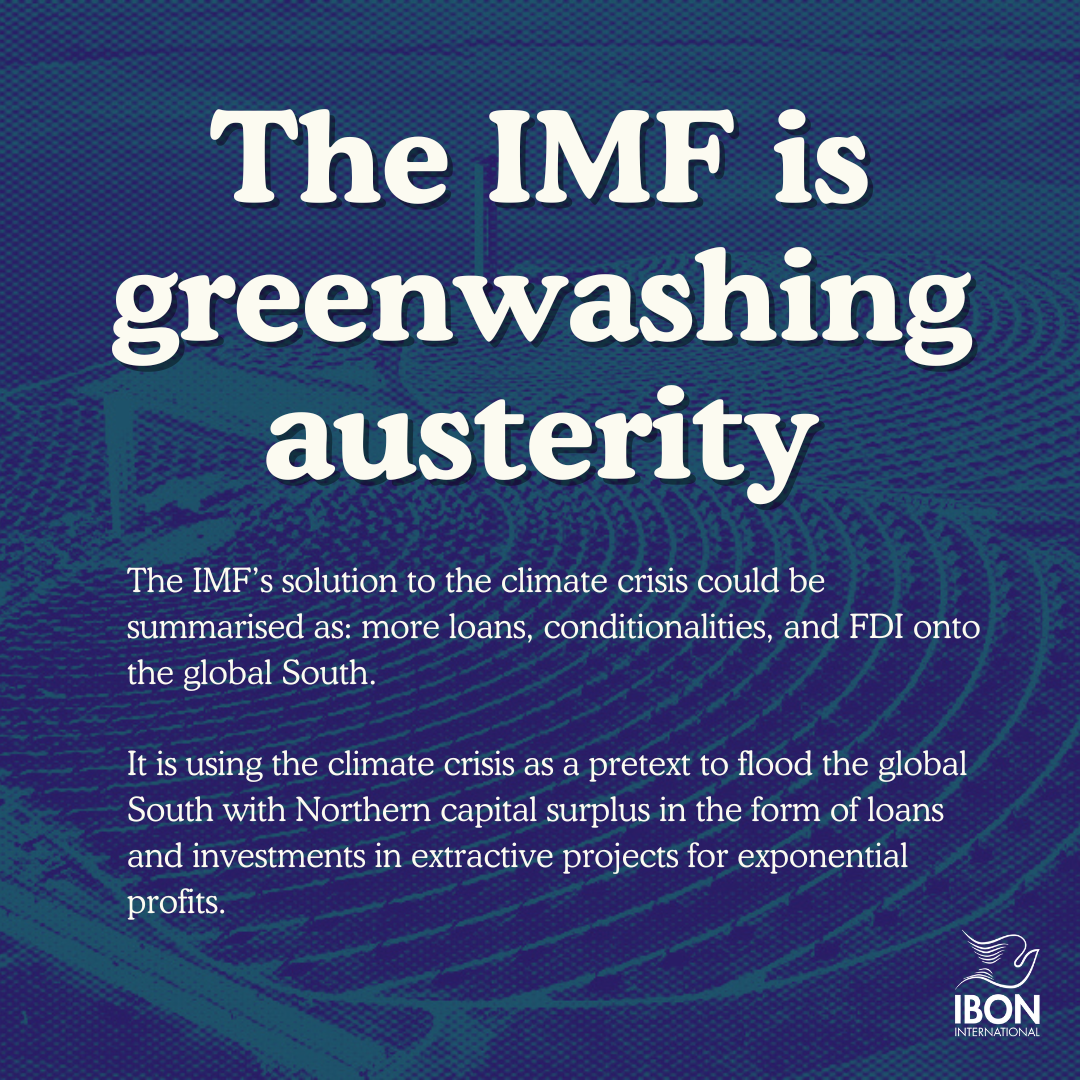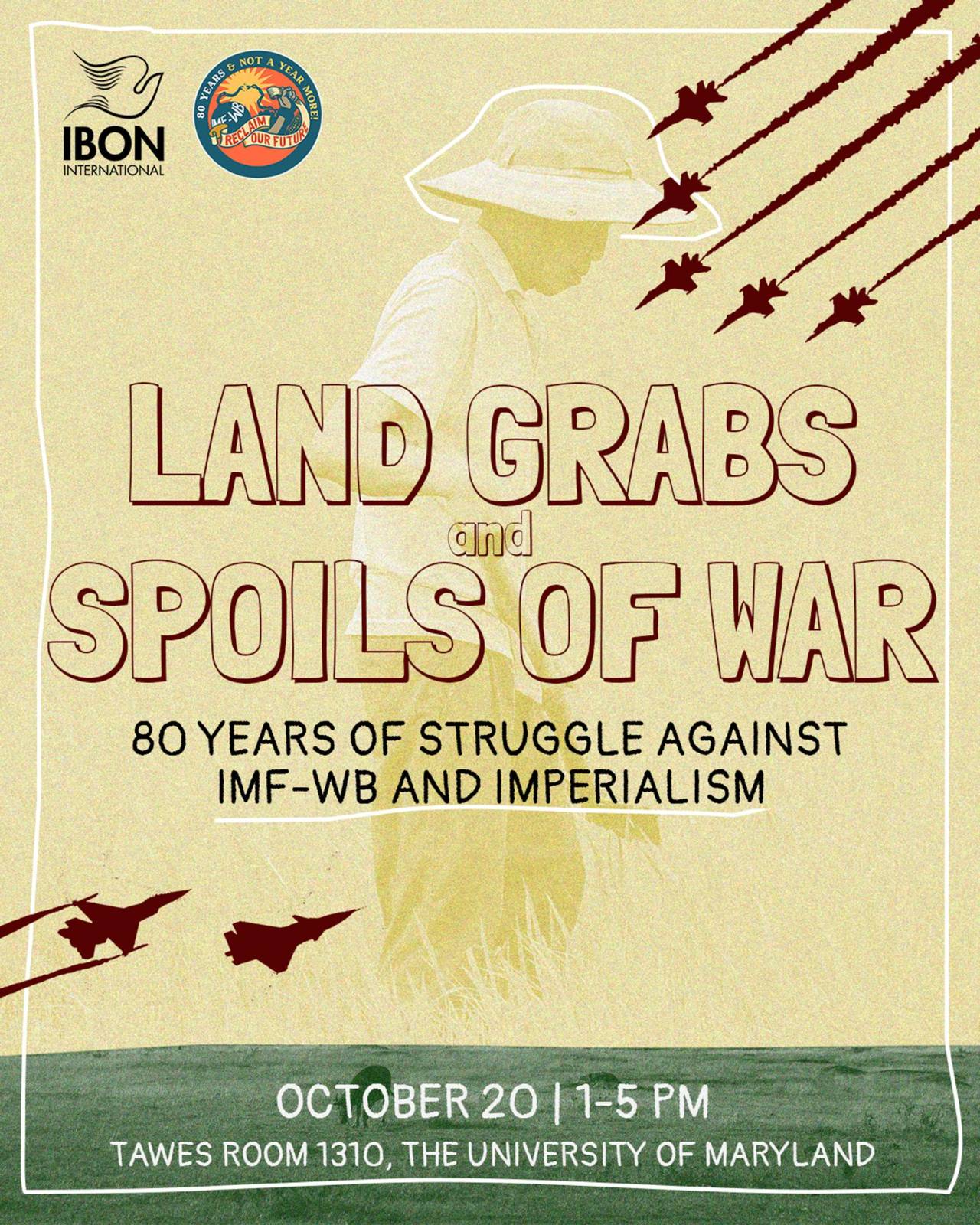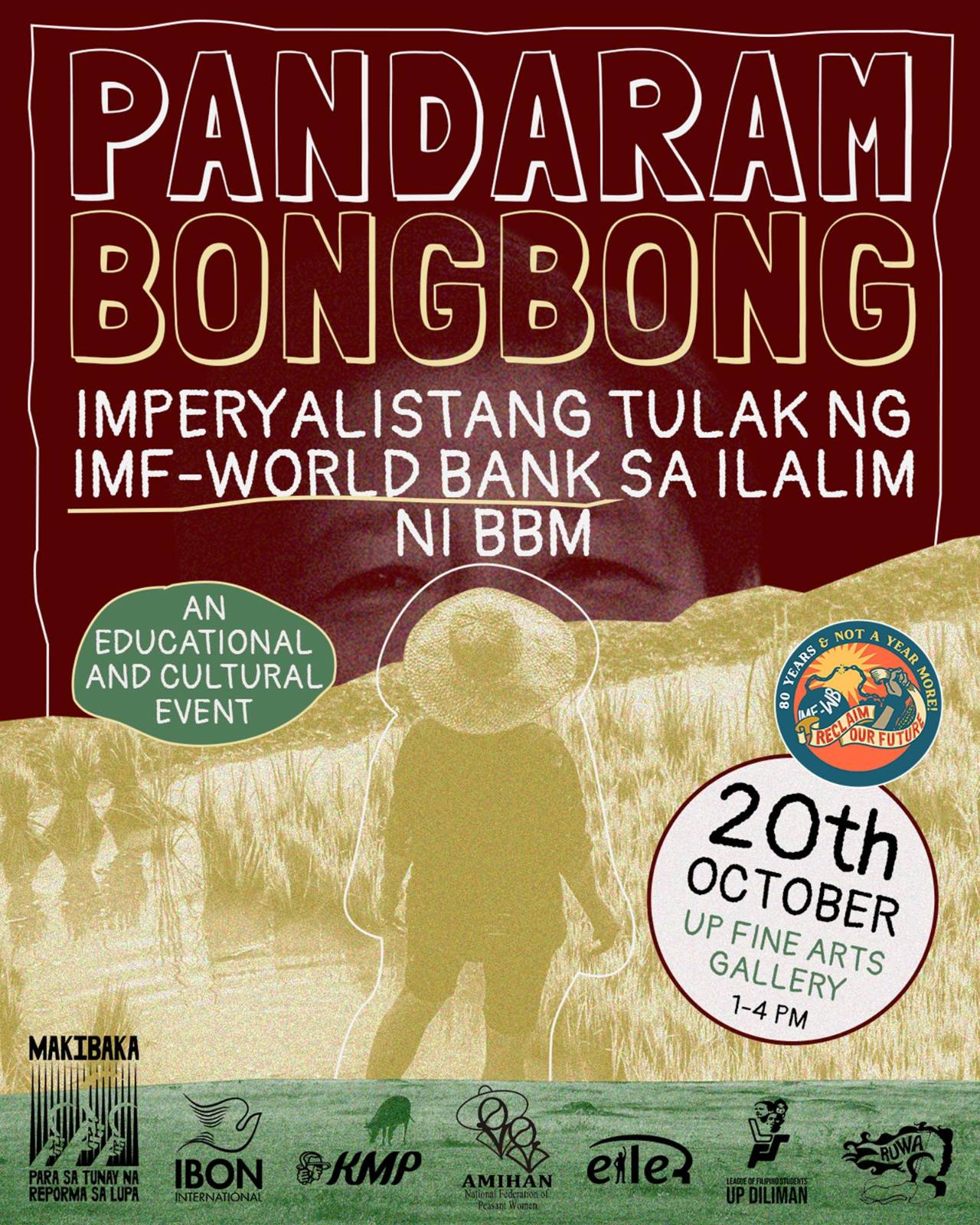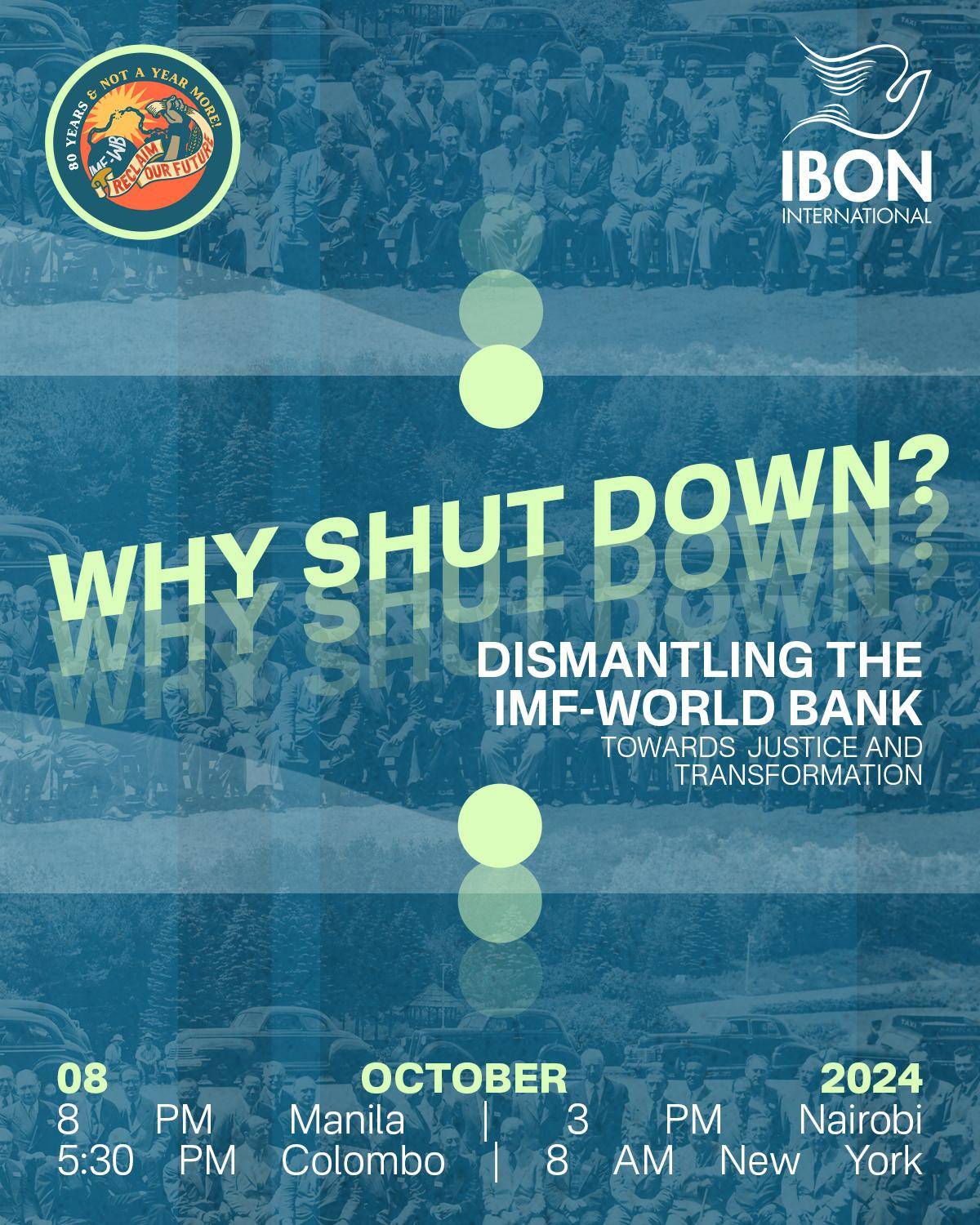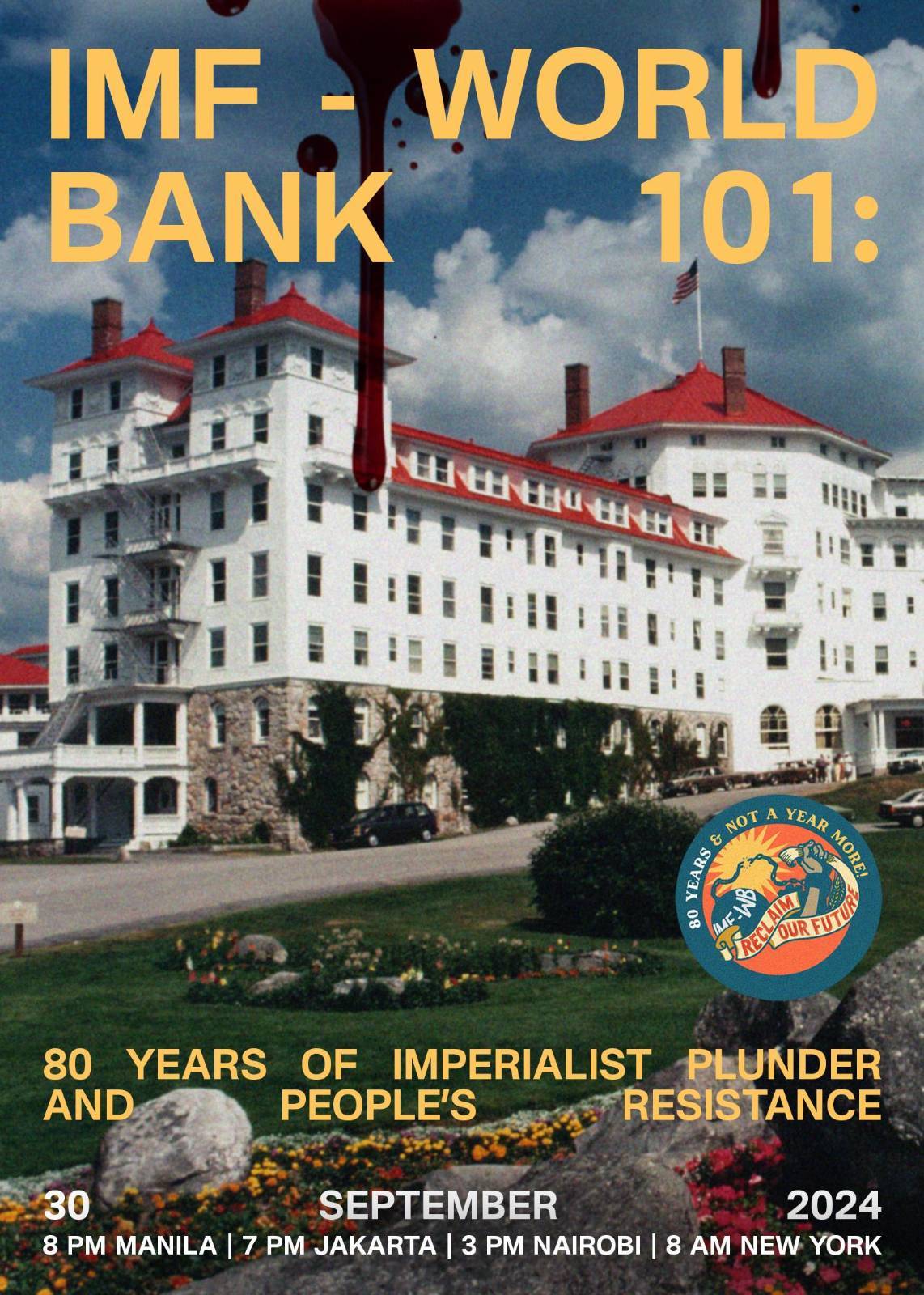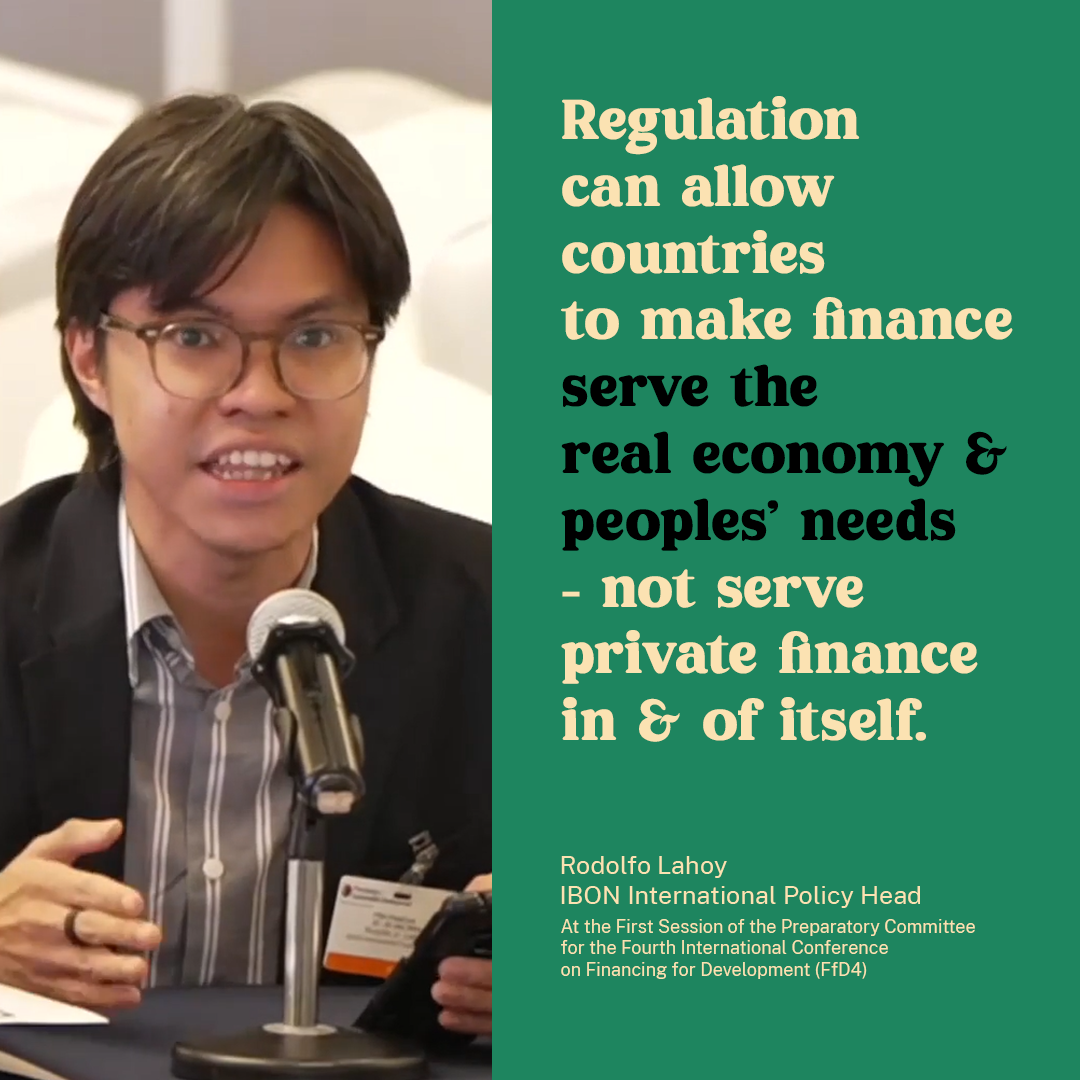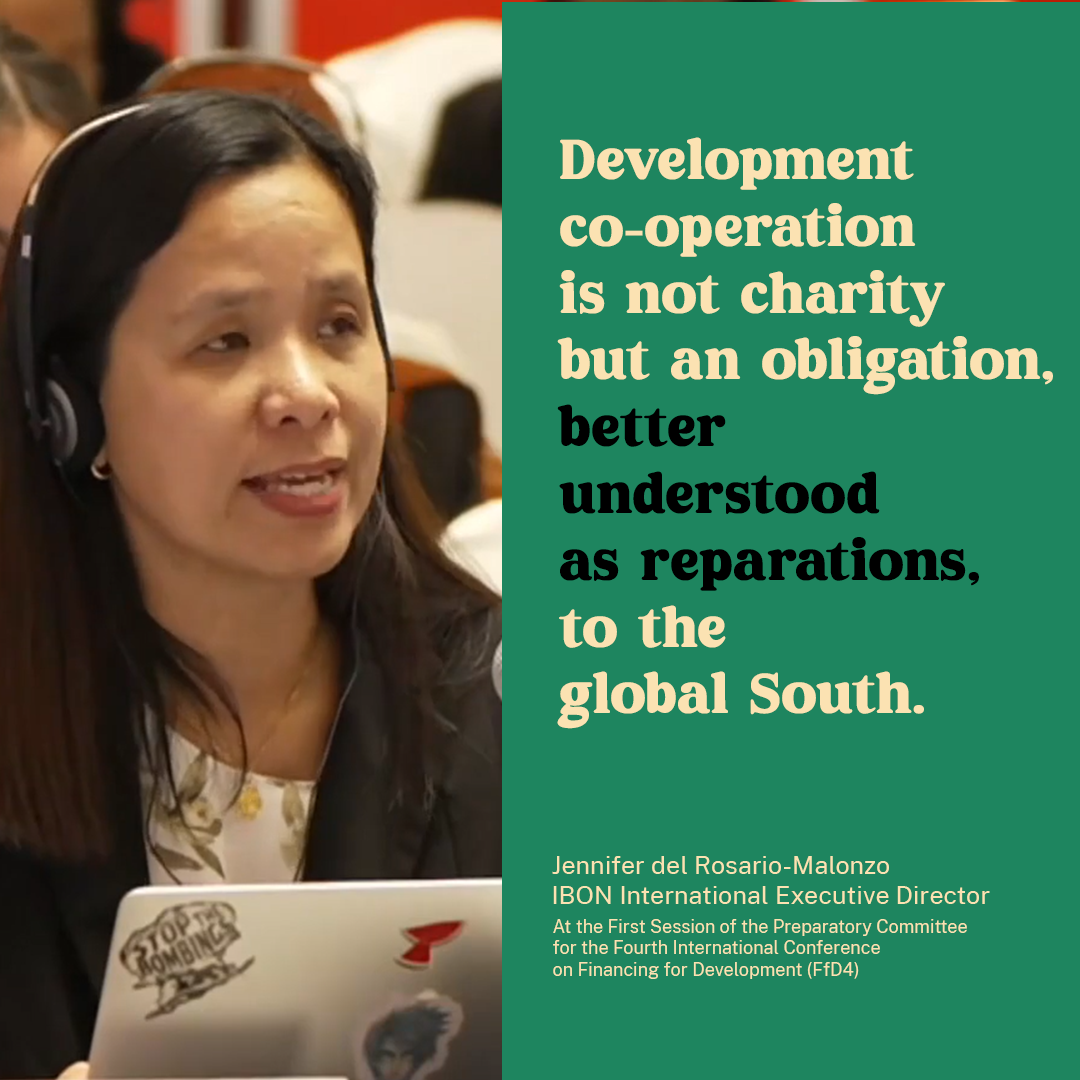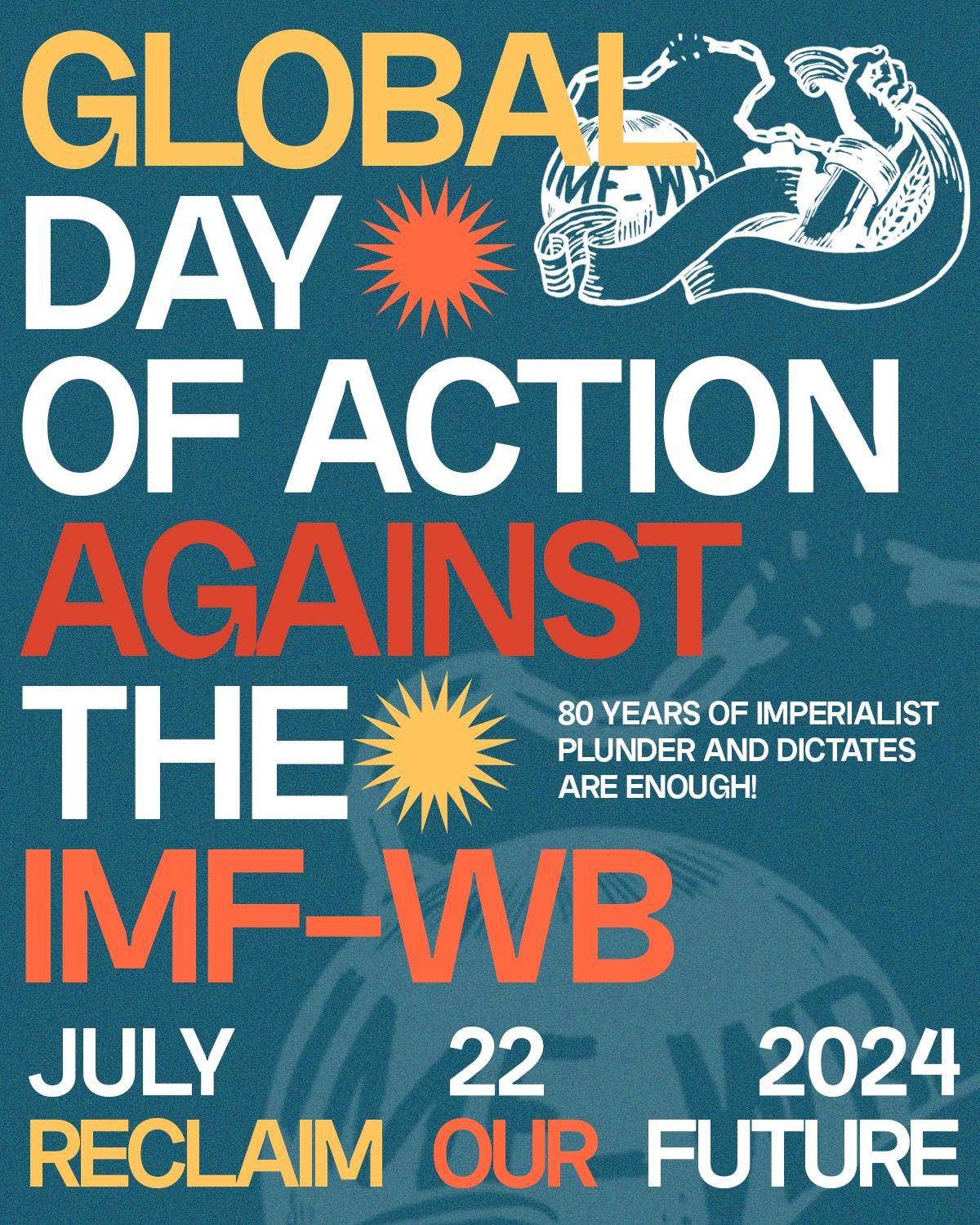The World Bank Group must be held to account for its harmful neoliberal policy dictates. Without addressing its role in current crises, we risk advancing a corporate recovery—enriching big business while impoverishing working people and women.
The 2022 World Bank Group Spring Meetings opened with a call for “green, resilient, and inclusive return to stability and growth,” amid the overlapping crises in health, food, climate, and conflict. In 2021, it introduced Green, Resilient, and Inclusive Development (GRID) as its approach to economic recovery.
The interconnected crises are systemic in nature, the World Bank Group has admitted. But the Bank stops short; it refuses to reflect on its own active role in upholding the prevailing world order marked by corporate control and the neoliberal economic framework.
IBON International, a Southern-based organisation working for people-centred development, is deeply concerned that the World Bank Group is using GRID in an attempt to gloss over its own policy failures. A redirection, urging to look forward in haste, in order to evade the notion of accountability, as the Bank’s promotion of big private capital has been the ultimate driving force behind our current crises.
We believe that the World Bank Group’s decades-long track record of privatising social services, many times in the form of public-private partnerships, made healthcare, housing, education, social pension, among others, inaccessible. Project financing and investment liberalisation encouraged investors in extractives, fossil fuels, and even false energy solutions—deepening ecological destruction and facilitating plunder of peasant and Indigenous lands. Farmlands across the global South are being converted to commercial use. What is left of agriculture can no longer provide for domestic needs due to the push to export cash crops.
These crises were only aggravated by the COVID-19 pandemic: an inaccessible healthcare system meant millions of deaths among working peoples. Massive land-grabbing meant hunger and grave food insecurity in both the cities and the countryside. Developing countries’ economies became hubs for low-waged labour in corporations’ production networks, or heavily shifted to service sectors. National industries and small and medium-sized enterprises had little to no growth, as well as poor employment and job security. All of these challenges further marginalised workers, peasants, Indigenous Peoples, women, and the urban poor, especially in the global South.
The World Bank Group’s project financing encouraged investors in extractives, fossil fuels, and even false energy solutions—deepening ecological destruction and facilitating plunder of peasant and Indigenous lands.
Along with people’s movements around the world, IBON International believes that those that brought these problems to the world cannot get us out; these institutions dominated by Northern states and corporations should not have the mandate to shape our future.
We think the World Bank Group must be held to account for the cumulative harms of its prevailing paradigm, and compelled to cease all operations that merely carry over harmful neoliberal policy dictates. Without addressing the legacies and continuing role of the World Bank Group in countries and the world economy, we risk advancing a corporate recovery, enriching big business while impoverishing working people and women.
Current documents on GRID show the World Bank Group continues to lean towards private investors and their “solutions” for recovery. The “Cascade” approach, criticised for advancing a corporate capture of development, is a built-in GRID feature.[i] Here, state roles are a last resort or merely facilitative of private capital. This “private finance-first” approach, as a minimum, should be abandoned. The same framework for corporate profit undergirds the Bank’s Business Enabling Environment project; pro-business reforms, together with cuts in social spending, appear as policy conditionalities in pandemic-era loans. If not the Bank and big corporations, who should be at the driver’s seat in shaping our pandemic-era economy?
Peoples in the global South and their organisations should take the decisive roles in shaping our pandemic-era economy.
IBON International holds that peoples in the global South and their organisations should take the decisive roles. They should have ownership of development processes, policies in health, agriculture, and industry—which bear on daily needs, a household’s next meal, and even life and death, in times of crisis.
We urge the international community to stand in solidarity with civil society organisations, social movements, and people’s organisations who reclaim their future. The way forward is away from the World Bank Group’s policies, programmes, and projects that uphold corporate interests and simply further entrench the monopoly capitalist system. #
***

